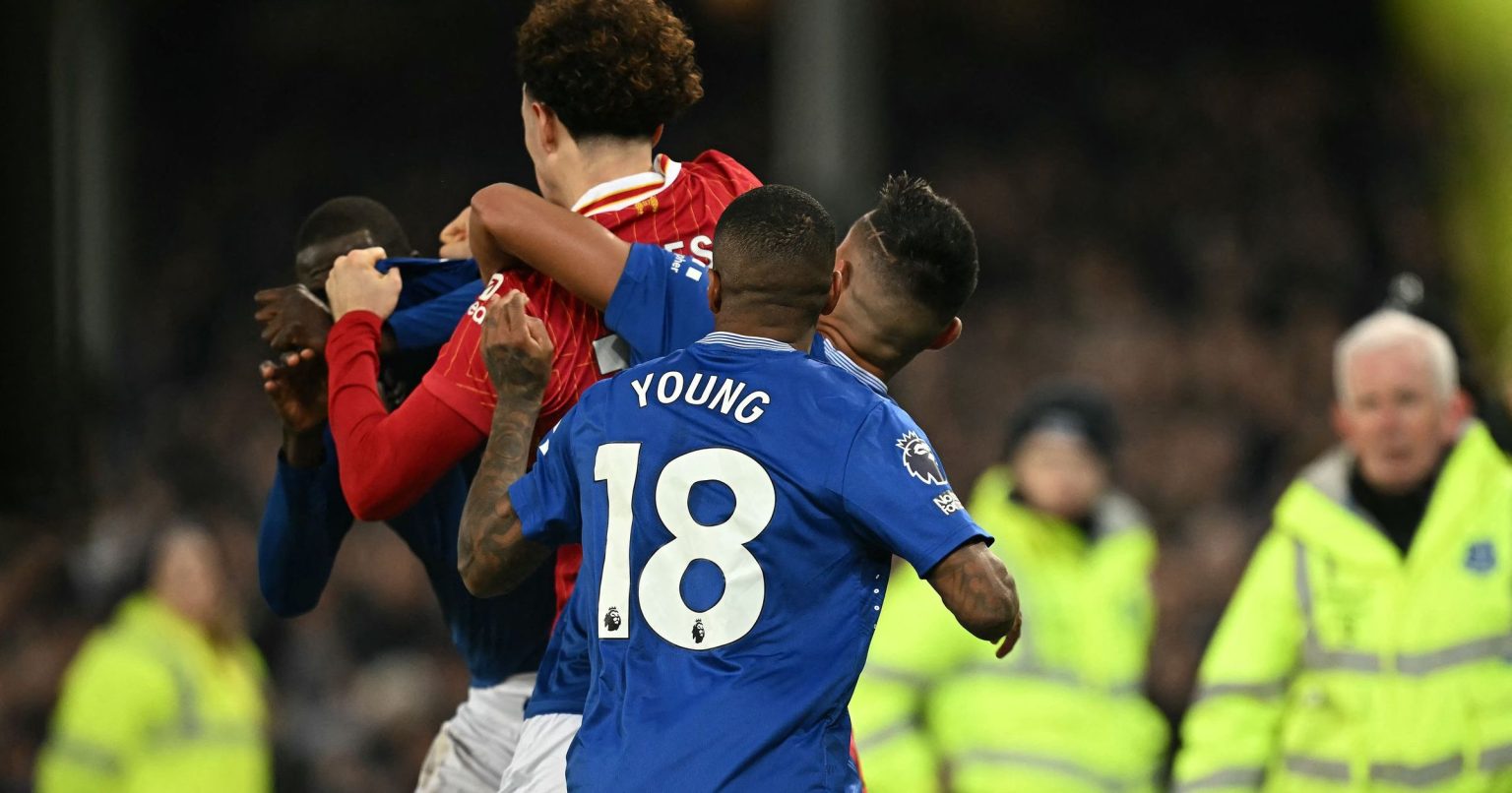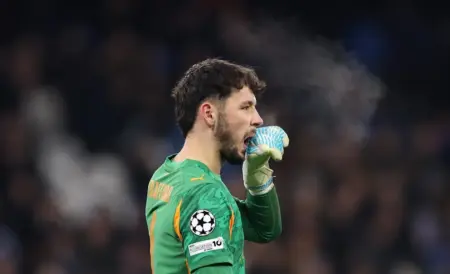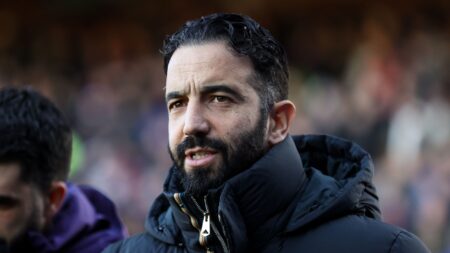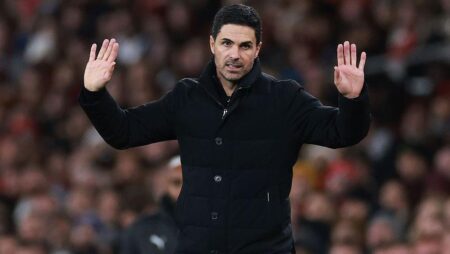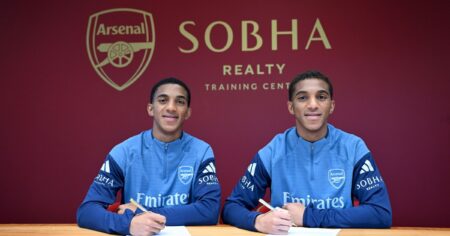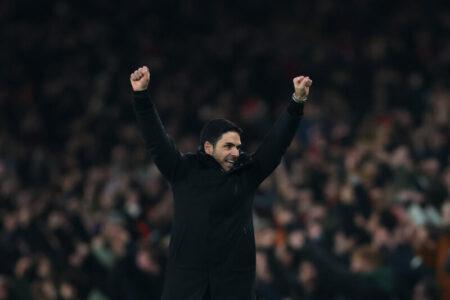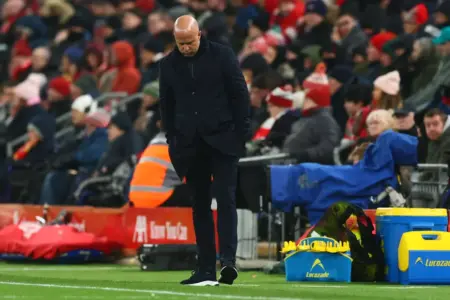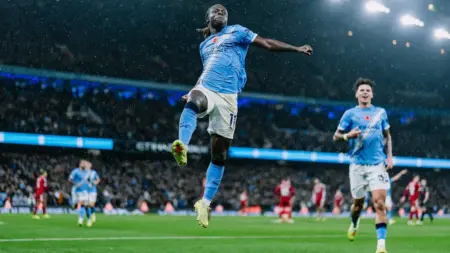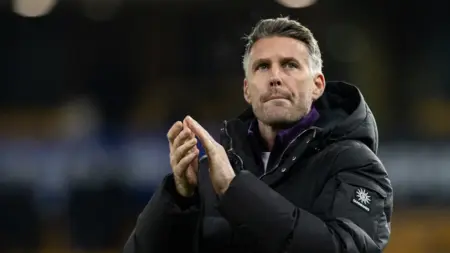The Final Whistle at Goodison Park
The final Merseyside derby at Goodison Park concluded with a dramatic 2-2 draw, thanks to James Tarkowski’s stunning last-gasp equaliser. The goal was a moment of sheer brilliance, sparking jubilation among Everton fans and players alike. However, the atmosphere soon turned volatile as Everton midfielder Abdoulaye Doucoure ran over to celebrate in front of the Liverpool supporters, a move that incited a furious reaction from Liverpool’s Curtis Jones. Both players were sent off, and the chaos didn’t stop there, as Liverpool manager Arne Slot also found himself on the wrong side of the referee, Michael Oliver, receiving a red card post-match. The TNT Sports panel, comprising Rio Ferdinand, Steve McManaman, and Phil Jagielka, dissected the events of this fiery conclusion, offering insights into the emotions and consequences that unfolded.
Emotion Overflows in the Derby
Phil Jagielka, a former Everton player, was quick to acknowledge the intense emotions that characterized the game. "You can’t really defend what they have done," Jagielka admitted. "There’s a lot of emotion gone into the game. Doucoure is very happy to get the equaliser, Curtis is a local lad, he’s gone to defend his team, and as it stands both teams are without a player come the weekend." The panel discussed the delicate balance between passion and respect, especially in a derby that carries such historical significance. Jagielka emphasized that while the players were driven by their emotions, the repercussions of Doucoure’s actions were severe and avoidable.
Respect and Responsibility
When Rio Ferdinand suggested that going against opposing fans isn’t always wrong, Jagielka countered, "The abuse sometimes they give you, it’s a one-way street. So I agree with you sometimes, Rio, as long as you’re not going to start a riot. The fact of the matter is, it’s a local derby." Ferdinand agreed, noting that while there is a deep-seated rivalry, there must be a level of respect. "That’s the problem. The difference is when it’s a local derby, you don’t like them," Ferdinand explained. "But there’s a respect, that you know you’re lighting the touchpaper if you go over near them. That’s what happened today and that’s where you draw the line." The panel highlighted the need for players to be mindful of their actions, especially in such emotionally charged environments.
Doucoure’s Foolish Decision
Steve McManaman was particularly critical of Doucoure’s decision to celebrate in front of the Liverpool fans. "The thing is he’s got 37,000 of his own fans to clap and cheer and celebrate with," McManaman pointed out. "To go over and antagonise, it was only going to end one way. You always know something negative is going to come out of it. He played well today, but they’ve lost him now for the next game. If they go and lose now the next game, what a stupid decision." The panel agreed that despite the moment’s significance, Doucoure’s action was short-sighted and could have long-term negative effects on Everton’s performance.
The Role of Emotion
Ferdinand provided a personal perspective, recalling a similar incident from his own career. "I get that, but sometimes it’s emotion. You want maturity but sometimes when it means so much – and it’s the last game here as a derby – that emotion does overflow," Ferdinand said. "I was in a situation where (Mario) Balotelli did this with the Man Utd fans at Wembley and I was incensed, I ran over and we got into a bit of a melee. So I understand what Curtis Jones is thinking and feeling in that moment." This insight shed light on the human side of the players, illustrating how the intensity of the moment can override rational thought and lead to impulsive actions.
Referee’s Challenge
The panel also discussed the officiating of the match, with McManaman expressing his disappointment in Michael Oliver’s performance. "Slot was incensed with the equaliser, he thought it was a foul," McManaman explained. "I do think Michael Oliver lost control of the game today, I really do. A lot of the second yellows and red cards were just, but I didn’t think he had a firm grasp of the game today, the occasion, the magnitude, how aggressive it was going to be. I did think he lost a little bit of control." The panel agreed that a key factor in the post-match chaos was the referee’s inability to manage the game’s aggressive and emotional climate effectively.
Looking Forward
The repercussions of the derby chaos extend beyond the final whistle, with both clubs facing the challenge of managing their teams’ discipline for upcoming matches. The TNT Sports panel emphasized the importance of learning from such incidents to avoid similar outcomes in the future. "Other games you can do that and it’s a bit of banter, but this is a Merseyside derby," Ferdinand concluded. The panel’s discussion underscored the unique nature of derby matches and the need for players, managers, and officials to maintain a higher level of composure and control to ensure the safety and integrity of the sport.

